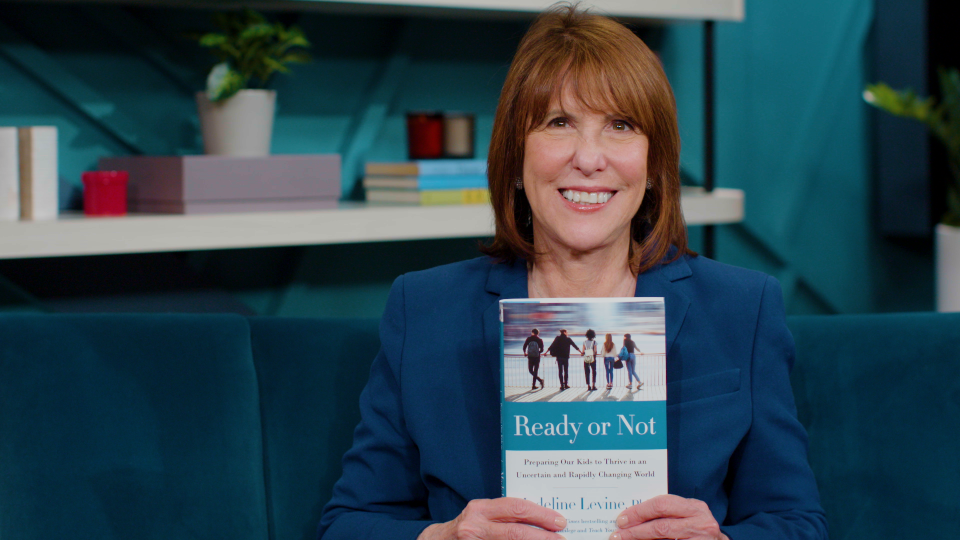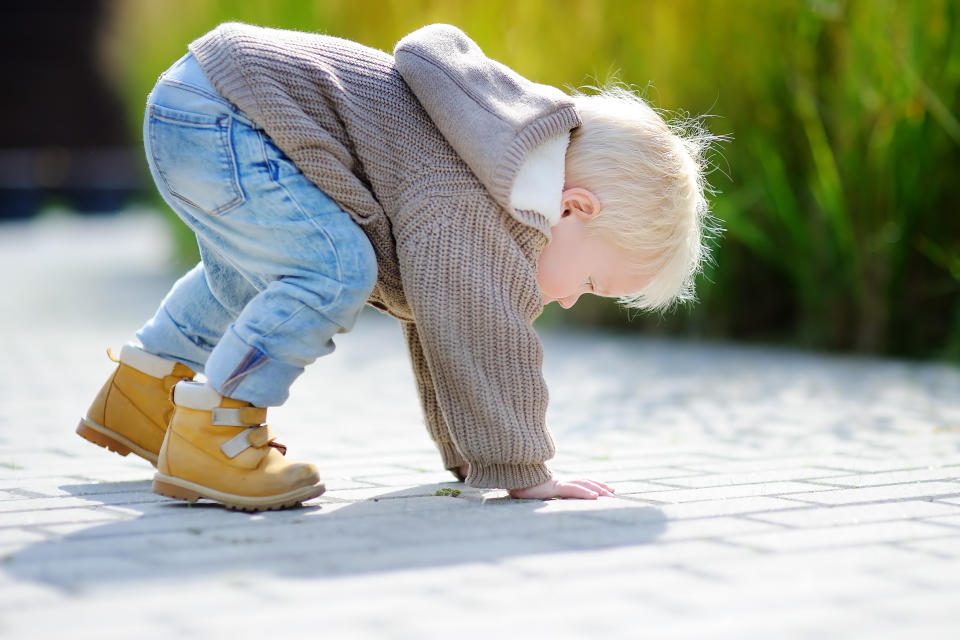Clinical psychologist details one big mistake parents make
Most parents want to raise self-sufficient and successful children, but Dr. Madeline Levine believes too many are sabotaging those goals by committing one common mistake.
“Because we know our kids are stressed out, we're trying to lessen their burden around things that are just kind of normal anxiety,” the clinical psychologist and author of “Ready or Not, Preparing Our Children to Thrive in an Uncertain and Rapidly Changing World,” said in a sit-down interview with Cashay Editor Janna Herron.
Read more: How to lifestyle plan when you start having children
Levine noted that almost a third of teenagers today have an anxiety disorder, a huge increase over the last 10 to 20 years. Additionally, 1 in 3 parents also suffer from anxiety, largely because they’re not confident they can prepare their children for a very uncertain world.
“So there's anxiety about preparation, there's anxiety about school massacres, there's anxiety about getting into school, there's anxiety about climate, there's just a boatload of anxiety,” Dr. Levine said. “And I think what parents are doing is they're trying to lower anxiety in the wrong ways and not lowering anxiety in the right ways.”

‘Don’t protect them from it’
Instead of helping children navigate potentially uncomfortable or uneasy circumstances, parents now are removing them from those situations altogether, Dr. Levine said.
“Kids going to camp, they're anxious... but the parents are saying ‘Oh, you're anxious. Honey, you don't have to go,” Dr. Levine said. “These are the normal developmental challenges that kids need some practice in seeing they can fall down... but they can manage.”
She recounted a young girl who didn’t like to eat sauce. Her mother responded by eliminating sauce in her life, including calling up the parents of her daughter’s friends to request a sauce-less dinner when her daughter slept over.
“Aside from the fact that that's nuts,” Dr. Levine said, the daughter doesn’t get more exposure to the thing that bothers her. “We don't protect them from it.”
‘Just incredibly incompetent’
What eventually happens is that children who are shielded from normal, everyday anxieties will grow up to be a young adult who isn’t very independent. They also appear spoiled and entitled, Dr. Levine said.
For instance, one young adult was in college for nine years, getting $9,000 a month from his parents. But he never went to class. Eventually, he returned home to his furious parents, but refused to get a job at Starbucks and spent his time smoking marijuana in his parent’s basement.
“And when you get down to it with him, it's not just that he's spoiled, he doesn't know how to do anything...He doesn't know how to talk to people, he doesn't know how to set an alarm clock,” Dr. Levine said. “So a lot of these kids who look incredibly spoiled are just incredibly incompetent.”

Tips for raising a child
Dr. Levine offers three simple steps to guide parents in teaching their children how to manage everyday anxieties.
Help yourself
Have a heart-to-heart with yourself and identify any issues that you’re having. Address those first. “You can't help your kids unless you're okay,” Dr. Levine said.
She also thinks it’s important to have activities that don’t include your children. “I think it's very important to show that there is a world beyond your kitchen table,” she said.
Listen more
“No kid has ever walked into my office and said my parents listen too much,” Dr. Levine said. “They come in and they say: ‘My parents talk too much and they never listen to me.’”
Instead, show some respect by listening to your children about the problem they’re dealing with. Ask questions like “What was that like for you?” and offer encouragement like “I think you can handle it.”
“I think that's the best message that a parent can give a kid,” she said. “Those kinds of messages are incredibly helpful as kids struggle with the kinds of things that are part of everyday life for children.”

Encourage age-appropriate risk
When your toddler was learning to walk, you’d encourage her to get back up after she fell down, Dr. Levine said.
“We would never say to that kid: ‘If you keep falling down, you're going to be flipping burgers at McDonald's for the rest of your life,’” she said. “We know that she has to have those experiences of falling down.”
Parents should keep taking that approach as their children get older, have new experiences, and try new things. Dr. Levine said adolescence is especially fraught for parents, because they have trouble letting go. But they should push through that.
“So will there be mistakes? Sure. Did we miss it sometimes? Of course,” Dr. Levine said. “But I think most well-intended parents have kids that are okay.”
Janna is an editor for Yahoo Finance and Cashay. Follow her on Twitter @JannaHerron.
Read more:
How one former U.S. Air Force nurse is 'Rebuilding America's Warriors'
'Drop by drop': How a trio of former Army engineer officers created an Afghan spice business
Read the latest financial and business news from Yahoo Finance
Follow Yahoo Finance on Twitter, Facebook, Instagram, Flipboard, SmartNews, LinkedIn, YouTube, and reddit.

 money
money 
